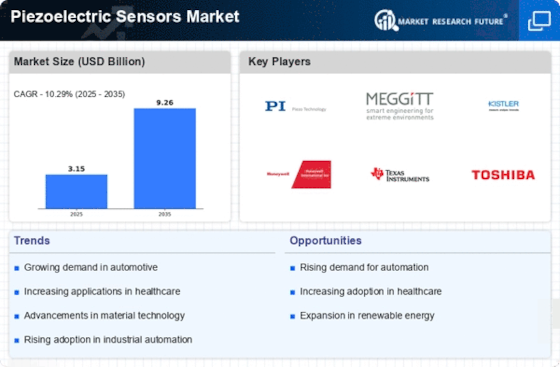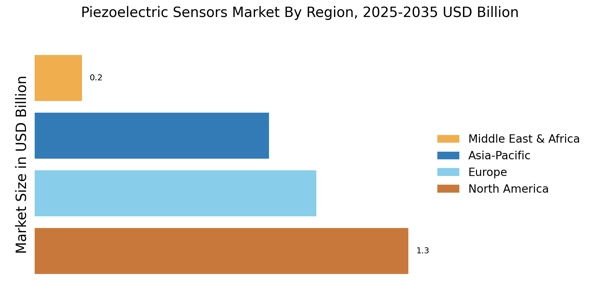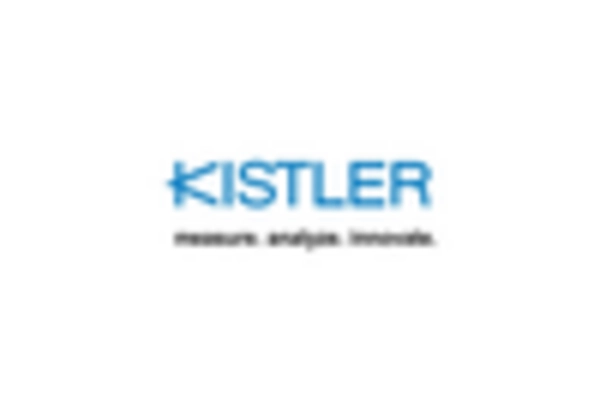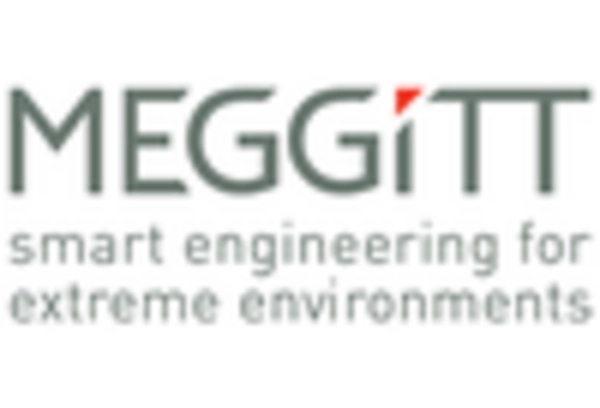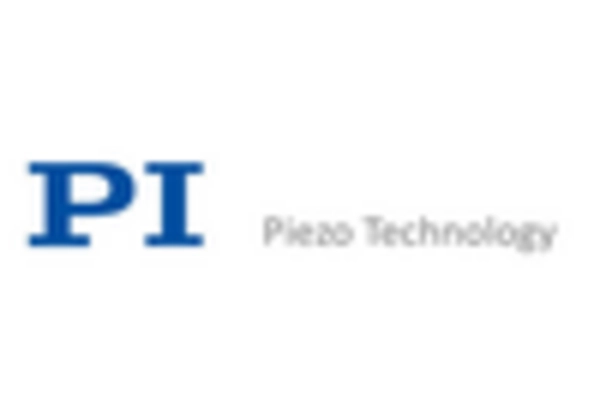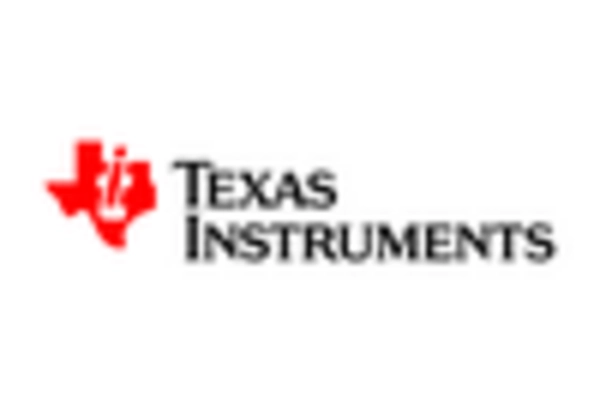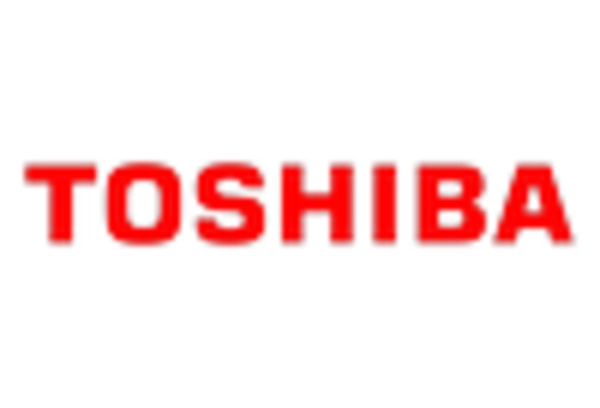Growth in Consumer Electronics
Consumer electronics is another pivotal sector propelling the Piezoelectric Sensors Market forward. The proliferation of smart devices, including smartphones, wearables, and home automation systems, has created a robust demand for miniaturized and efficient sensors. These devices utilize piezoelectric sensors for various functionalities, such as touch sensing and motion detection. Market data indicates that the consumer electronics segment is expected to account for a significant share of the overall piezoelectric sensors market, with projections indicating a growth rate of approximately 8% annually. This trend underscores the increasing reliance on innovative sensor technologies to enhance user experience and device interactivity.
Focus on Sustainable Technologies
Sustainability is becoming a central theme across various industries, and the Piezoelectric Sensors Market is no exception. The increasing emphasis on energy-efficient technologies and renewable energy sources is driving the development of piezoelectric sensors that can harvest energy from their environment. This trend aligns with global efforts to reduce carbon footprints and enhance energy efficiency. Industry expert's suggest that the demand for energy-harvesting piezoelectric sensors is expected to grow significantly, with projections indicating a potential market expansion of around 15% in the next few years. This focus on sustainability not only supports environmental goals but also opens new avenues for innovation in sensor technology.
Rising Demand in Automotive Sector
The automotive sector is experiencing a notable surge in the adoption of piezoelectric sensors, driven by the increasing need for advanced safety features and enhanced vehicle performance. As vehicles become more sophisticated, the integration of piezoelectric sensors for applications such as tire pressure monitoring systems and collision detection is becoming commonplace. The Piezoelectric Sensors Market is projected to witness substantial growth, with estimates suggesting a compound annual growth rate of over 10% in the coming years. This trend is further fueled by the push towards electric vehicles, where lightweight and efficient sensors are essential for optimizing battery performance and energy management.
Emerging Applications in Healthcare
The healthcare sector is increasingly recognizing the potential of piezoelectric sensors for a variety of applications, including medical diagnostics and patient monitoring. These sensors offer advantages such as high sensitivity and miniaturization, making them suitable for wearable health devices and implantable sensors. The Piezoelectric Sensors Market is likely to see a surge in demand as healthcare providers seek innovative solutions to improve patient outcomes and streamline operations. Market forecasts indicate that the healthcare application segment could grow at a rate of approximately 12% in the coming years, reflecting the ongoing trend towards personalized medicine and remote health monitoring.
Advancements in Industrial Automation
The industrial automation sector is witnessing transformative changes, with piezoelectric sensors playing a crucial role in enhancing operational efficiency and precision. These sensors are integral to various applications, including robotics, process control, and condition monitoring. The Piezoelectric Sensors Market is benefiting from the growing trend of Industry 4.0, where smart manufacturing processes demand real-time data acquisition and analysis. Recent market analyses suggest that the industrial automation segment is poised for significant expansion, with a projected growth rate of around 9% over the next few years. This growth is indicative of the increasing investment in automation technologies and the need for reliable sensor solutions.


